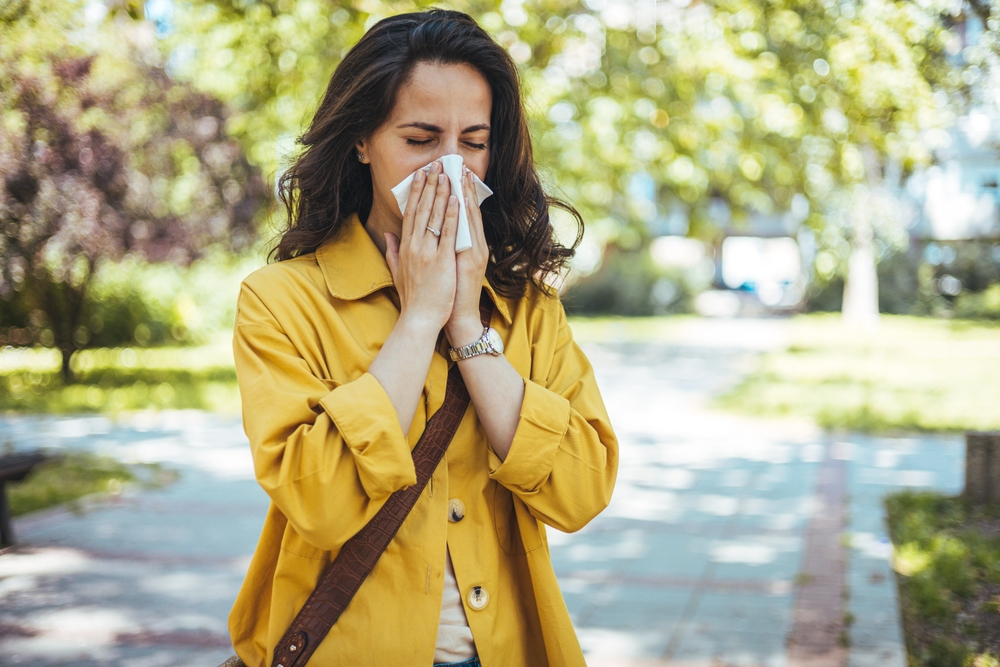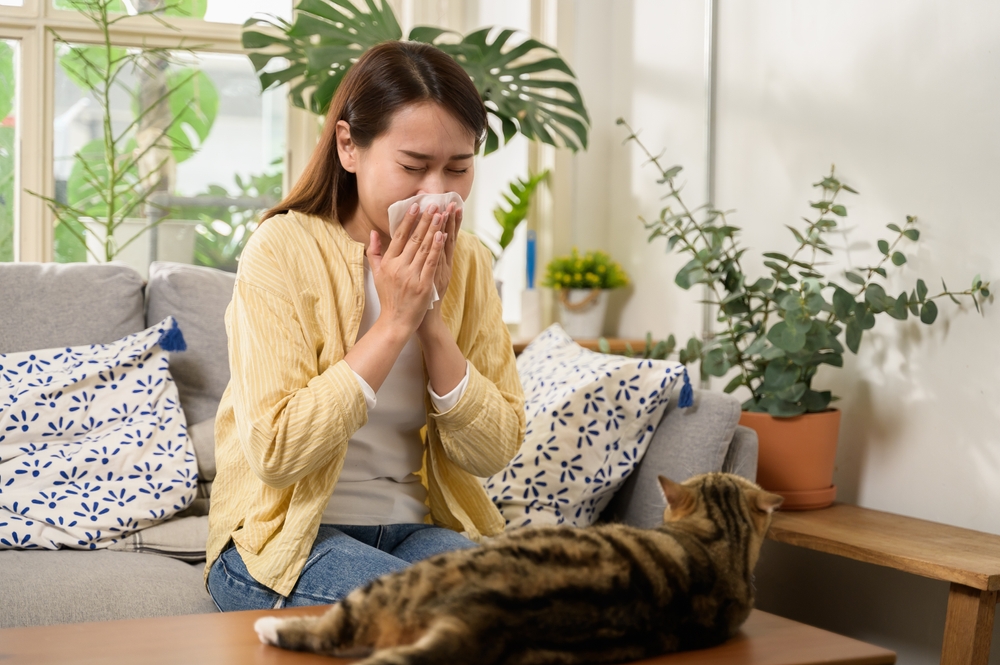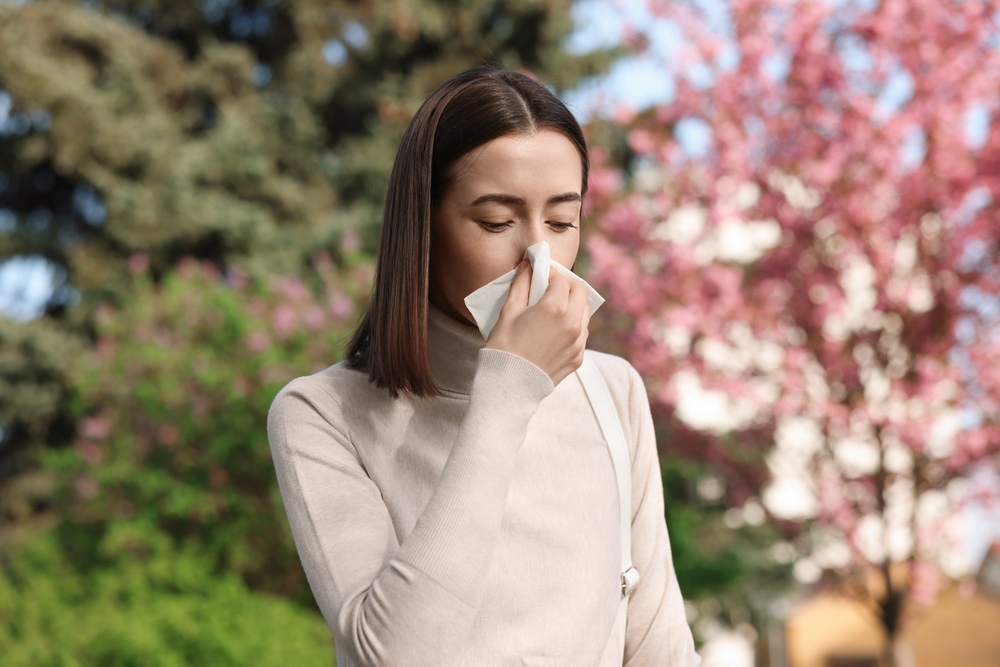
Do you suffer from allergies? Allergies can control what you eat, where you go, and what you do.
If you’ve tried antihistamines and other allergy medications that only bring temporary relief or have stopped working, treating your allergies can put you back in control of your life. One way to do this is with allergy drops, a safe and highly effective treatment that can offer lasting relief.
Keep reading to learn why treating allergies can mean finding relief and breathing better!
What is an Allergy?

An allergy occurs when the immune system reacts to substances that usually don’t cause a reaction in most people. The substance is known as an allergen. Common allergens include:
- Mold
- Latex
- Pollen
- Dust mites
- Pet dander
- Insect stings
- Cockroach droppings
- Food allergies, which may consist of fish, eggs, milk, tree nuts, sesame, wheat, soybeans, peanuts, or crustaceans
The immune system protects your body from germs and harmful substances that could make you ill. It produces fighters called antibodies.
When you have an allergy, the immune system creates antibodies that mark a specific allergen as harmful, even though it’s not. These particular antibodies remain on high alert for that specific allergen.
However, once you’re exposed to the allergen, those antibodies release chemicals, including histamine, to expel the allergen. Histamine causes allergy symptoms.
What are the Symptoms of Allergies?

Allergy symptoms vary, depending on the allergen involved. These symptoms can affect your skin, digestive system, nasal passages, sinuses, and airways. The symptoms of an allergic reaction may include:
- Hives
- Rashes
- Bloating
- Redness
- Sneezing
- Coughing
- Itchy nose
- Runny nose
- Stomach cramps
- Itchy, watery eyes
In severe cases, an allergy can trigger a life-threatening reaction called anaphylaxis. Common symptoms of anaphylaxis or anaphylactic shock are:
- Anxiety
- Headache
- Dizziness
- Feeling warm
- Swollen tongue
- Pain or cramps
- Trouble breathing
- Feeling lightheaded
- Loss of consciousness
- Tightness in the throat
- Abrupt drop in blood pressure
- Diarrhea, nausea, or vomiting
- Hives covering most of the body
- Abnormal heart rate (too slow or too fast)
Anaphylaxis requires urgent medical attention. If you know you suffer from allergies that can cause anaphylaxis, you’ll carry epinephrine, a life-saving drug that stops anaphylaxis.
Epinephrine reverses life-threatening cardiovascular and respiratory symptoms by improving blood pressure and opening the airways.
What are Allergy Drops?
Sublingual immunotherapy (SLIT) or allergy drops are a form of allergen immunotherapy. The treatment entails placing drops of allergen(s) extract under the tongue (sublingually), where the body gradually absorbs them.
Allergy drops help the immune system build long-term tolerance to an allergen. Over time, repeatedly exposing your immune system to gradually increasing doses of an allergen decreases your sensitivity to it.
Your immune system will slowly become more accustomed to the allergen, significantly reducing the severity of your symptoms and the frequency of allergy attacks. Unlike other allergy medications, allergy drops address the root cause of your allergies, not just the symptoms, offering lasting relief.

Which Types of Allergies Can Allergy Drops Treat?
Allergy drops can treat the following types of allergies:
- Mold allergies
- Food allergies
- Seasonal allergies
- Pet/animal allergies
- Environmental allergies
How Do Allergy Drops Work?
After you complete allergy testing, your allergist at Southern Indiana ENT will prepare a custom solution in dropper vials based on the substance you’re allergic to. You’ll collect the sublingual drops when ready, and your allergist will make new ones for you every few months.
Sublingual drops are taken once daily by placing them under the tongue for 2 minutes before swallowing. Your allergist will guide you on the proper technique.
To improve the effectiveness of the treatment, avoid eating or drinking 15 minutes before and after taking the sublingual drops. Allergy drops contain glycerin, so they have a mild, sweet taste, making them easier to tolerate
What are the Phases of Allergy Drop Therapy?
The first dose of allergy drops is given in-office at Southern Indiana ENT. A waiting period will ensure that no adverse reaction occurs.
Then, all subsequent doses are taken at home. Your Southern Indiana ENT allergist will provide an epinephrine (Epi-pen) auto-injector in case of a rare risk of anaphylaxis.
Allergy drop therapy involves two phases:
Escalation or Build-Up Phase
In the first ten weeks or escalation phase, your daily dose of allergy drops slowly increases from diluted to full strength.
Maintenance Phase
Therapy will then shift to the maintenance phase. During this phase, you’ll begin taking the same dose of drops daily.
You’ll have routine follow-ups with your allergist to evaluate the effects of the allergy drops and adjust the dosing if necessary.
How Long Do Allergy Drops Take to Work?
Sublingual immunotherapy is a long-term treatment. Most people notice an improvement in their allergy symptoms in as little as 3 to 4 months.
Even when you start experiencing relief, don’t stop taking your doses prematurely. Daily dosing lasts 3 to 5 years to build long-lasting immunity for sustained relief.
Long-Term Allergy Relief
Sublingual immunotherapy at Southern Indiana ENT can help you find lasting relief from the persistent and debilitating symptoms of allergies. Allergy shots will treat the underlying cause of your allergies and help improve your quality of life.
Are you struggling with allergies? Schedule your appointment today at Southern Indiana ENT in Columbus and Seymour, IN, to discover the benefits of allergy shots and treating your symptoms effectively. Isn’t it time to live life without allergies holding you back?

